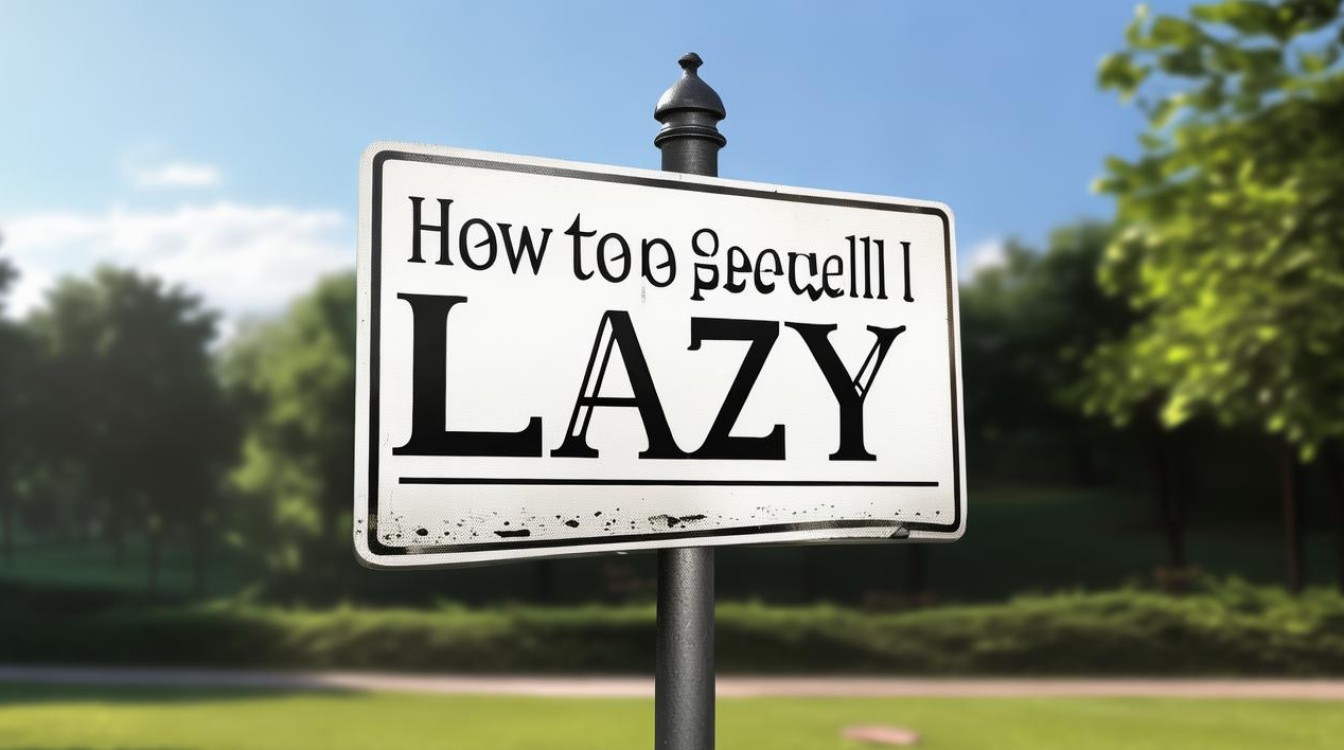When learning English, spelling can sometimes be tricky, especially with words that sound similar or have irregular forms. One common question is: How do you spell "lazy" in English? The correct spelling is L-A-Z-Y, and it’s an adjective describing someone who avoids work or effort.

Why Is "Lazy" Often Misspelled?
Even though "lazy" is a short word, people occasionally confuse it with similar-sounding terms or make spelling errors. Here are some frequent mistakes:
- "Lasy" – This is incorrect because the "a" and "z" are misplaced.
- "Lazie" – Adding an extra "i" and "e" is unnecessary.
- "Lazzy" – Doubling the "z" is incorrect in standard English.
The confusion might arise from words like "crazy" (incorrect for "crazy") or "nozy" (incorrect for "nosy"), where the "z" sound leads to spelling errors.
The Correct Spelling and Pronunciation
"Lazy" is pronounced /ˈleɪzi/, with a long "a" sound (like "lay") followed by a "zee" ending. Breaking it down:
- L – Clear "ell" sound.
- A – Long "ay" as in "day."
- Z – "Zee" sound.
- Y – Ending with a short "ee."
Common Uses of "Lazy"
This word is versatile and appears in various contexts:
- Describing people: "He’s too lazy to clean his room."
- Describing animals: "The cat is lazy and sleeps all day."
- Metaphorical use: "A lazy river flows slowly."
Related Words and Forms
-
Laziness (noun) – The state of being lazy.

Example: "His laziness caused him to miss deadlines."
-
Laze (verb) – To spend time relaxing.
Example: "She lazed around all weekend."
-
Lazily (adverb) – Doing something in a lazy manner.
Example: "The dog wagged its tail lazily."

Tips to Remember the Spelling
To avoid mistakes, try these memory tricks:
- Think of "lay" + "zee" – The first part sounds like "lay," and the ending is a "z" sound.
- Visualize a lazy cat – Picture a cat lying around, forming the letters L-A-Z-Y.
- Write it repeatedly – Muscle memory helps reinforce correct spelling.
Frequently Asked Questions
Q: Is "lazy" a negative word?
A: It can be, depending on context. While it often implies criticism ("Stop being lazy!"), it can also be neutral ("a lazy afternoon").
Q: Are there synonyms for "lazy"?
A: Yes, including "idle," "sluggish," "indolent," and "lethargic."
Q: Can "lazy" describe objects?
A: Occasionally, like "a lazy river," meaning slow-moving.
Final Thoughts
Spelling "lazy" correctly is simple once you break it down. Remember, it’s L-A-Z-Y—no extra letters or changes needed. Whether you're writing an essay, a message, or just practicing English, keeping this spelling in mind will help you communicate clearly.

If you found this helpful, share it with others who might struggle with English spelling. Improving language skills takes practice, but mastering small words like this builds confidence.



